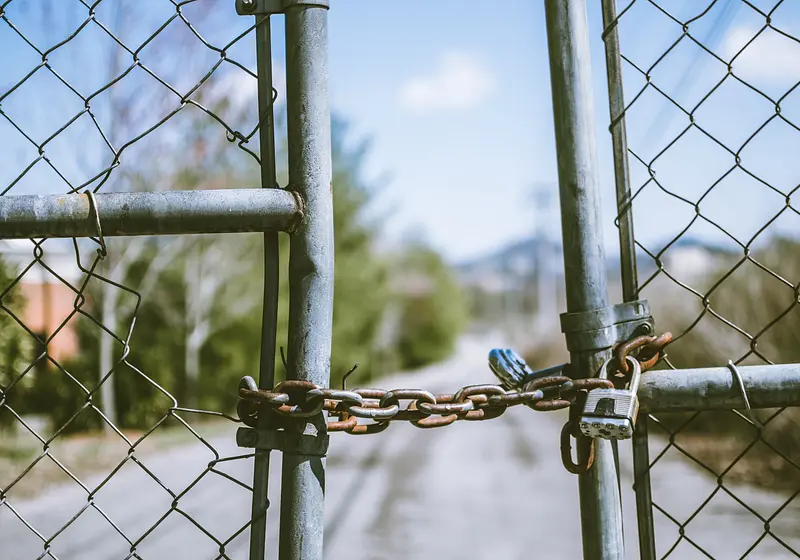“Gatekeeping.” According to the Cambridge English Dictionary, gatekeeping is defined as “the activity of trying to control who gets particular resources, power, or opportunities, and who does not.” This definition, while not completely akin to the TikTok interpretation, is one that can be utilized when discussing the gatekeeping of music and musical artists. In recent months, the hashtag “#gatekeep” has gone viral on TikTok, leaving many confused as to what it means and its relevance to the field of pop culture. The virality of this hashtag highlights the core meaning of what gatekeeping is: the conservation of the regard to which select individuals hold their personal musical tastes.
Don’t be misled, though. Gatekeeping can refer to the gatekeeping of hair and makeup, in which people who have learned a hack to perfect their beauty routine do the best they can to prevent others from claiming the trick as their own. One can also gatekeep a movie when they find some sort of underreported or under-reviewed piece of filmography that they attempt to keep from the general public because they believe it is too niche for most people to understand. “Gatekeepers” often undermine the intelligence or the appreciative abilities of people interested in similar genres, movies, clothes, etc., and attempt to hide it or label it in a way that conveys their distaste for others cherishing the work that they themselves hold to such a high regard.
Let us slide into your dms 🥰
Get notified of top trending articles like this one every week! (we won't spam you)Labels
Gatekeeping is most often seen in the bestowing of objectionable labels and titles. Words like “vintage,” “quirky,” or “rare” are used to describe objects or bodies of work that create a distinction between what is heralded as unique and special and what is commonplace and trendy. By guilt-tripping those who are curious about these objects and pieces, it creates a culture of toxicity and makes it unpopular to appreciate these things.

Take the Quiz: Which Generation Matches Your Personality?
Discover the generation you truly belong to!
The Psychology of Acquisition and Proprietorship
It is in human nature to want to be a part of or own something. According to the National Institute of Health’s National Library of Medicine, a research experiment conducted by Lauren Leotti, Sheena Iyengar, and Kevin Ochsner studied this very phenomenon. It states that the “belief in one’s ability to exert control over the environment…is essential for an individual’s wellbeing”.
There is an innate human lust for control that turns into a psychological sine qua non. In the case of the gatekeeping of music, these instances largely occur because people want to feel like they own something special. The only problem with this need is that they are trying to make a claim on something that is public and never belonged to them in the first place.
Gen Z vs. Boomers
In 2021, a TikTok was posted in which skateboarder Nathan Apodaca was filmed skating and drinking cranberry juice while listening to the classic song “Dreams” by Fleetwood Mac. And while many celebrated the resurgence of the song’s success, many long-time fans of Fleetwood Mac’s music denounced the celebration. In the comments, they were making claims about music simply because they were fans before the newer generation began to appreciate music.
This is, also, seen in the consistent social media rivalry between Gen Z’ers and their elders. Be it fashion, parenting choices, lifestyle choices, or political ideals, there always seems to be a new debate being sparked between the generations. This clashing isn’t anything new, however.
A common theme in the young adult media is the misunderstandings between teens and “out of touch” parents. These ideas of social estrangement and displacement are often woven into coming of age movies and novels. The reason why these ideas are center stage now is because now everyone has a platform.
These platforms are places in which people can speak their minds, regardless of how agreeable these statements may be. Furthermore, when the youth and their forefathers both try to claim the spotlight with whatever ideas or comments they have about each other, they inevitably collide. Hence, the creation of “gatekeepers”.
Unpopularly Popular
Names like Harry Styles, Doja Cat, Beyonce, and Ariana Grande are ones that need no introduction. People like Kanye West and Adam Levine couldn’t walk into a room without hundreds of people recognizing them by just their faces. But when people of different backgrounds form similar opinions and come together for the sole reason of worshipping their idols, what happens?
Well, naturally, someone strays from the pack. Someone seeks out individuality by being “quirky” or “different”. This is another example of gatekeeping.
Often times, people dislike the feeling of liking what’s “popular” or “trendy” as it makes them feel basic or unextraordinary. They change their musical tastes and tarnish the credibility of others in hopes that it makes them seem like trendsetters or innovators.
Conclusion
In a time where social media and streaming services make it exceptionally hard to label a genre as niche, many people feel entitled to music that they resonate with the most. These communities or “fandoms” of relatively unknown artists or genres turn what is intended for public enjoyment into a fight for the ownership of what was never theirs in the first place.
Furthermore, using labels and discouraging words as justification for the control of an artist’s work. And, instead of creating a tight-knit community of like-minded music lovers, walls are built up to make the community of varying opinions even more divided.









